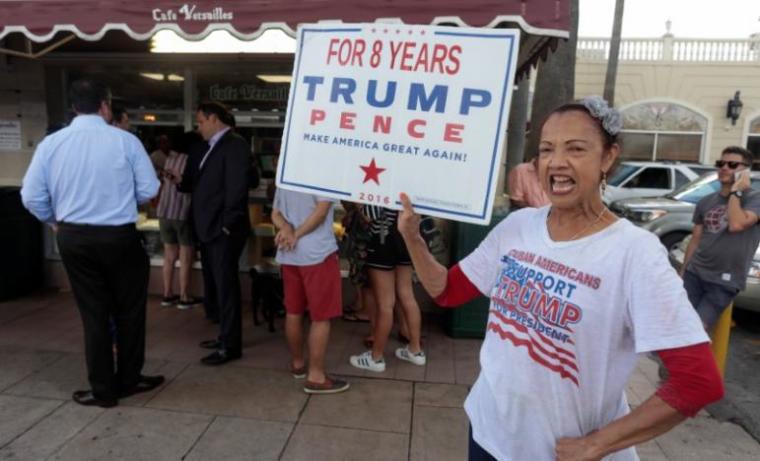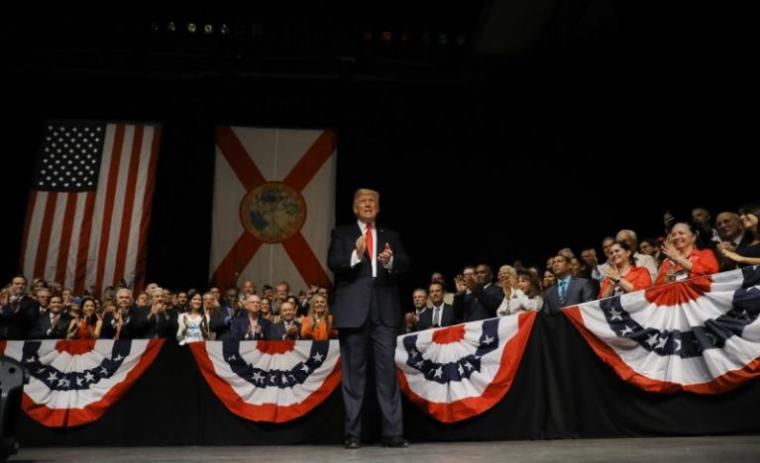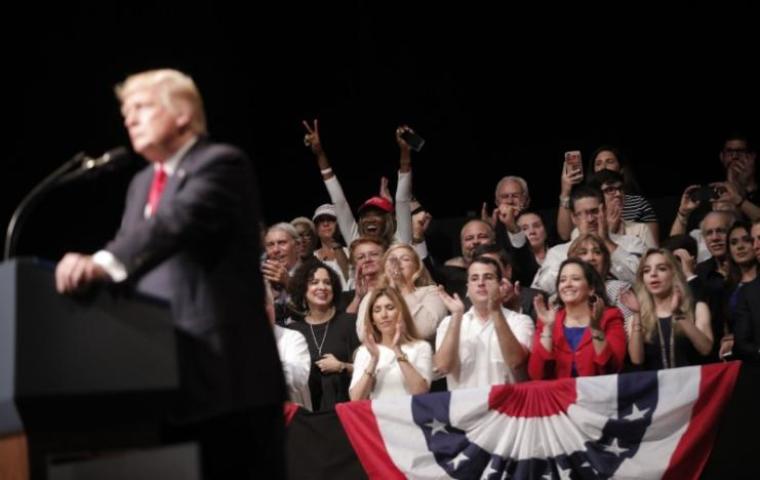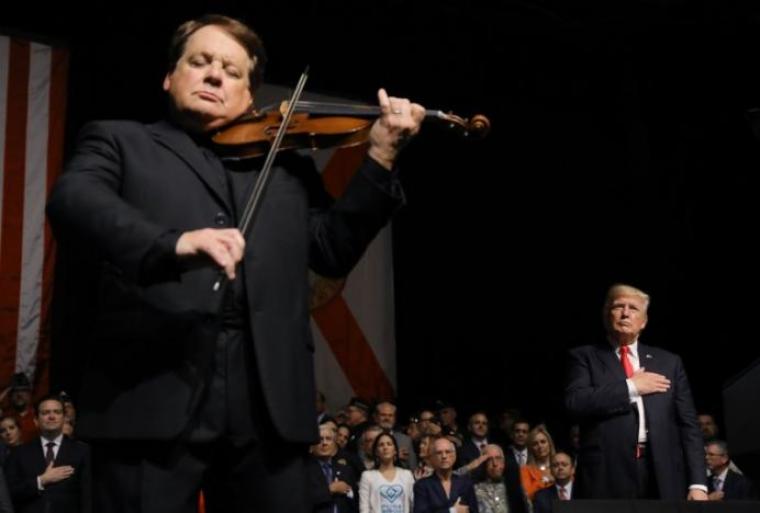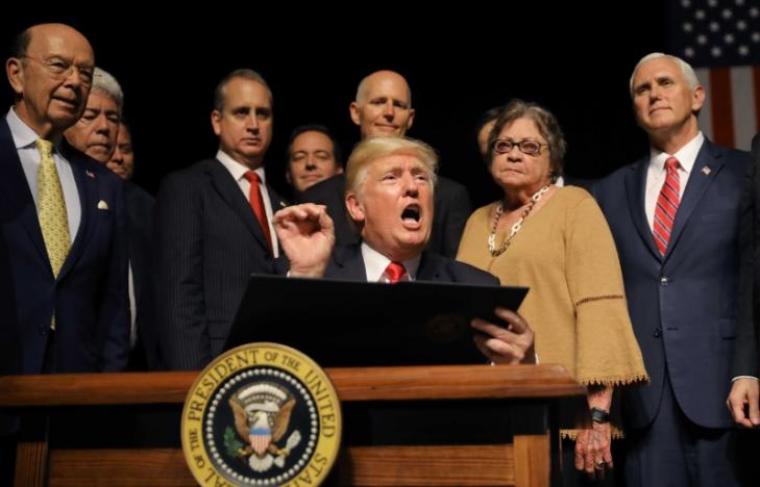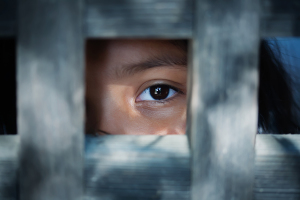Trump Cancels Obama's 'One-Sided' Cuba Deal With Castro's Brutal Regime
President Donald Trump on Friday ordered tighter restrictions on Americans traveling to Cuba and a clampdown on U.S. business dealings with the island's military, saying he was canceling former President Barack Obama's "terrible and misguided deal" with Havana.
Laying out his new Cuba policy in a speech in Miami, Trump signed a presidential directive to roll back parts of Obama's historic opening to the Communist-ruled country after a 2014 diplomatic breakthrough between the two former Cold War foes. But Trump was leaving in place many of Obama's changes, including the reopened U.S. embassy in Havana, even as he sought to show he was making good on a campaign promise to take a tougher line against Cuba.
"We will not be silent in the face of communist oppression any longer," Trump told a cheering crowd in Miami's Cuban-American enclave of Little Havana, including Republican Senator Marco Rubio of Florida, who helped forge the new restrictions on Cuba.
"Effective immediately, I am canceling the last administration's completely one-sided deal with Cuba," Trump declared as he made a full-throated verbal assault on the government of Cuban President Raul Castro.
Trump's revised approach, which will be contained in a new presidential directive, calls for stricter enforcement of a longtime ban on Americans going to Cuba as tourists, and seeks to prevent U.S. dollars from being used to fund what the Trump administration sees as a repressive military-dominated government.
But facing pressure from U.S. businesses and even some fellow Republicans to avoid turning back the clock completely in relations with communist-ruled Cuba, the president chose to leave intact some of his Democratic predecessor's steps toward normalization. The new policy bans most U.S. business transactions with the Armed Forces Business Enterprises Group, a Cuban conglomerate involved in all sectors of the economy, but makes some exceptions, including for air and sea travel, according to U.S. officials. This will essentially shield U.S. airlines and cruise lines serving the island.
"We do not want U.S. dollars to prop up a military monopoly that exploits and abuses the citizens of Cuba," Trump said, pledging that U.S. sanctions would not be lifted until Cuba frees political prisoners and holds free election.
However, Trump stopped short of breaking diplomatic relations restored in 2015 after more than five decades of hostilities. He will not cut off recently resumed direct U.S.-Cuba commercial flights or cruise-ship travel, though his more restrictive policy seems certain to dampen new economic ties overall.
The administration, according to one White House official, has no intention of "disrupting" existing business ventures such as one struck under Obama by Starwood Hotels Inc, which is owned by Marriott International Inc, to manage a historic Havana hotel. Nor does Trump plan reinstate limits that Obama lifted on the amount of the island's coveted rum and cigars that Americans can bring home for personal use. While the changes are far-reaching, they appear to be less sweeping than many U.S. pro-engagement advocates had feared. Still, it will be the latest attempt by Trump to overturn parts of Obama's presidential legacy. He has already pulled the United States out of a major international climate treaty and is trying to scrap his predecessor's landmark healthcare program.
Trump justified his partial reversal of Obama's Cuba measures to a large extent on human rights grounds. His aides contend that Obama's efforts amounted to "appeasement" and have done nothing to advance political freedoms in Cuba, while benefiting the Cuban government financially.
Trump's critics have questioned why his administration is now singling out Cuba for its human rights record but downplaying the issue in other parts of the world.
Citing the lack of human rights concessions from Cuba in the detente negotiated by Obama, Trump said, "It's hard to think of a policy that makes less sense than the prior administration's terrible and misguided deal with the Castro regime."
International human rights groups say, however, that again isolating the island could worsen the situation by empowering Cuban hard-liners. The Cuban government has made clear it will not be pressured into reforms in exchange for engagement.
The Cuban government had no immediate comment, but ordinary Cubans said they were crestfallen to be returning to an era of frostier relations with the United States with potential economic fallout for them.
(Additional reporting by Matt Spetalnick, Lesley Wroughton and Patricia Zengerle in Washington, and Sarah Marsh and Marc Frank in Havana; writing by Matt Spetalnick; Editing by Jeffrey Benkoe and Jonathan Oatis)










